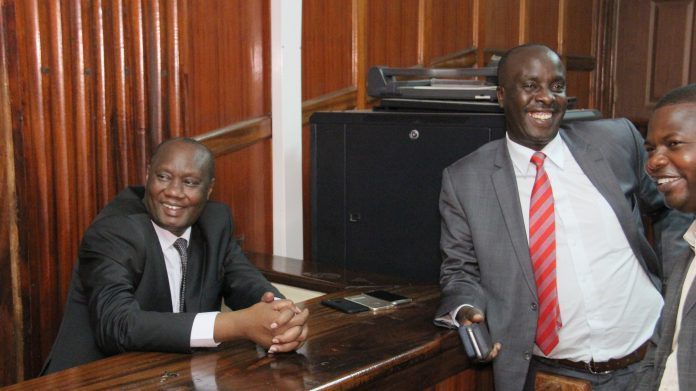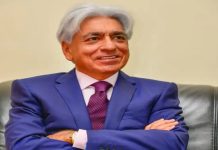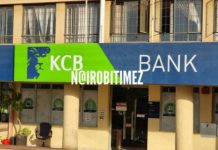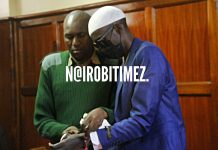
Director of Public Prosecution has suffered a major blow after high court dismissed his application seeking to set aside trial court orders barring EACC from carrying out investigations in a case facing Busia governor Sospeter Ojaamong.
High Court Judge John Nyabuto Onyiego dismissed the DPP application saying he did not find anything illegal, incorrect or improper in the trial court’s holding and finding , the prosecution’s investigations in the alleged forgery of documents would form basis of separate case.
“”Accordingly, it is my finding that the application is not merited and the same disallowed and the original file be returned to the trial for proceedings to continue as scheduled,” ordered Judge Onyiego.
The judge said the trial court has wide powers to admit or not to admit certain evidence subject to the rules of evidence on admissibility.
Justice Onyiego further said it is not the duty of the high court to micro manage the court proceedings before the subordinate court.
“The court cannot for instance keep directing the lower court on which evidence to admit or not admit. A criminal trial is self contained in terms of procedure regarding admission of evidence,” ruled the judge.
The judge further noted said that, where the final verdict is not satisfactory to either to either party, the aggrieved party shall have a right of appeal.
DPP filed the application in the high court seeking orders to review and reverse the orders made by Milimani Anti-corruption Chief Magistrate Douglas Ogoti blocking further investigating the case in the ongoing trial of the governor.
He further wanted the court to pronounce the correctness , legality or propriety of the order issued on 4 of December last year.
Prosecution further applied to be allow to adduce the evidence gathered in the respect to the certification of the intended defence exhibits marked for identification during the prosecution case.
While opposing DPP application, Ojaamong lawyer Danstan Omari told the court that , the application was misconceived as it was inviting the high court to micro manage the trial court proceedings.
Lawyer Omari further argued that the documents in question are public documents which are printed and gazetted and do not need verification.
Last year court barred the agency from carrying out investigations in a case facing Busia governor Sospeter Ojaamong.
“The application dated 14 November 2018 is allowed to the of barring the EACC or any other officer acting under its instructions from conducting any investigations pertaining to the subject matter pending hearing before this court (this case) of the purpose is for use in this case”. ruled Ogoti.
Anti Corruption Court Chief Magistrate Douglas Ogoti issued the order barring further investigation on grounds that the matter is still before court.
” The continued investigation by the EACC is ban faith since the investigations came to an end when the governor was charged and trial is almost over” the court said.
The order by the court came after Ojaamong his lawyer Danstan Omari made an application seeking to block EACC from probing matters pending before the court.
” There cannot be an investigation on the subject before the court without express permission of the court”. said the magistrate.
In his ruling, Ogoti said no party in the proceedings is allowed to go behind the back of the court in this case EACC which is an investigative agency to investigate a matter pending before it without the knowledge of the court.
He further said EACC move was bent to interfere with the process of the trial and also with the integrity of the trial itself.
Magistrate added that, the court will restrict itself to the fact that have been submitted to it for investigations by the prosecution and the defence.
He said documents marked for identification by defence is evidence submitted to the court for investigations as per the requirement by the definition of the term ‘evidence’ in evidence Act.






